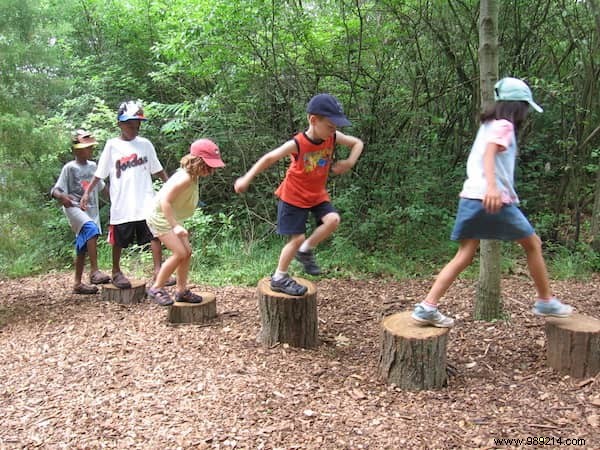
Did you know that in France, 4 out of 10 children never play outside? That's 39% of young French kids, according to a study by the Institute for Health Surveillance (InVS) involving 808 children aged 3 to 10.
This survey also reveals that only one in two children spends time outdoors after school.
Most parents recognize that outdoor play is crucial for children's health and well-being. Here are 10 evidence-based reasons confirming just how vital it is:

Numerous studies demonstrate that sunlight and natural light exposure reduce the risk of myopia and enhance distance vision in children. Kids who spend more time outdoors show better distance vision than those focused on indoor activities. Recent research indicates just 14 hours a week of outdoor light can make a difference.
Research shows that playing in dirt outdoors helps children build stronger immunity. Exposure to bacteria, viruses, and soil microbes supports immune system and brain development while improving mood and reducing anxiety.
Food alone can't provide enough—80-90% of vitamin D comes from sunlight. Just 10-15 minutes of unprotected exposure daily suffices; apply sunscreen afterward.
Over 100 studies confirm outdoor activities lower stress through positive physiological and psychological effects. One survey found 90% of children experienced stress relief from nature play and outdoor pursuits.
Studies link natural environments to reduced ADHD symptoms, with outdoor activities showing the strongest benefits, especially in children under 5. A University of Michigan study reported 20% improvements in memory and attention after one hour in nature. Additionally, 78% of teachers note that kids who play freely outdoors concentrate better and excel in class.
Outdoor play strengthens physical condition and promotes healthy, active bodies. In France, obesity affects 3% of boys and 4% of girls aged 3-17 (INPES data). Running, climbing, and exploring burn calories and tie to better academic performance; even nature walks boost creativity.
Outdoor play develops superior sensory and motor skills. Navigating uneven terrain, rocks, branches, gravel, sand, and mud enhances balance, agility, dexterity, and depth perception.
Research shows children with regular outdoor time, even during school, perform better across all subjects. Nature-based education improves critical thinking test scores. California studies highlight gains in humanities, science, language arts, and math from outdoor classrooms; one program lifted science scores by 27%.

Unlike static indoor spaces, the outdoors is dynamic and unpredictable, prompting constant questioning, observation, and discovery that fuels curiosity and creativity.
Beyond screens and books, hands-on outdoor exploration teaches local ecosystems. Kids gain pride and knowledge from identifying neighborhood plants and animals.